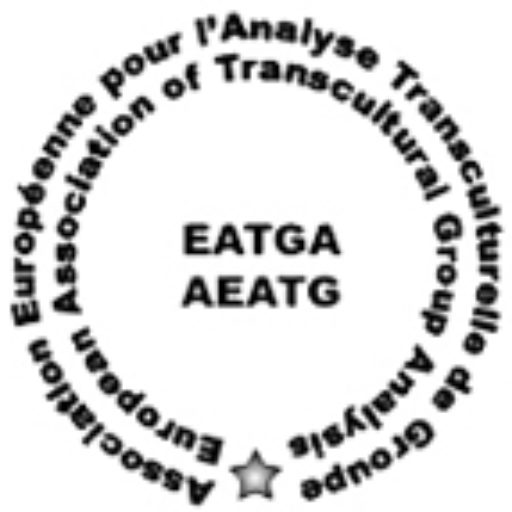



Le 24 février 2023 de 18h aura lieu le Groupe de Réflexion, animé par Alessandra Manzoni et Marlene Spero. Elles nous invitent à réfléchir et echanger autour du thème : “Après Palerme : de l’incompréhension à la collaboration. Travailler avec les mots et travailler avec les actions”. Ce sera l’occasion, après Budapest, de prolonger notra travail d’élaboration des journées d’études de Palerme.
EATGA Online Reflexive Group Meeting on the 24th of February 2023
present: Jaak Le Roy, Velia Bianchi, Christoph Rosenberger, Marlene Spero, Alessandra Manzoni,
Ruth Waldvogel, Elio Vera, Bettina Fink, Maria Silvera, Karine Nazir, Christine Schwankhard
De Laborda, Pirkko Ahonen, Silvia Sas-Amati after the break
apologized: Giuseppe Lo Piccolo, Mary Spreng-Courtney, Claudine Vacheret, Anna Checchi
The first part of the meeting lasted from 18.00 to 19.15. After a break it was continued from 19.30 to
20.45.
In the last 15 minutes Jaak gave an outlook to the planned Study Day in Paris on Friday, the 2nd of
June and Saturday, the 3rd of June respectively the General Assembly on Sunday morning.
Giuseppe in his function of Scientific Secretary sent a short Welcome Text. Unhappily he could not
participate for family reasons.
The theme of our meeting was
After Palermo: from incomprehension to collaboration. Working with words and
working with action – following Palermo
First Marlene outlined the topic of the session:
Our work with CISS raised several questions. Firstly whether our group analytical model of
working with groups , words, interpretations, counter-transference etc is appropriate for an
organisation that works in a more structured, task orientated and behavioural way.
Secondly whether the context of our work has changed. We work with a mixture of cultures,
languages, religions, social and sexual relationships in a world that is more fluid, chaotic,
traumatic and unequal, where politics and economics weigh so heavy. How can we “put
ourselves in the others shoes” in order to communicate”? Do we need to adapt our approach?
As a supplementary illustration Alessandra gave a piece of her work:
In the course of an individual therapy she hurt a patient deeply. Words were not enough to
repair it. She gave her as symbolic gift a book of George Segal. It was helpful to heal the
relationship. Actions are not always acting out!
Ruth mentioned encounters with colleagues with different, strict opinions about Covid, Israel
or Ukraine. For instance a colleague said, Putin could not do anything else. The gap was too
big. It was not possible to communicate. Consequently she is more suspicious and hesitating,
what to say in groups and she is thinking more about how the other will react.
Jaak asked what is the elephant in the room?
For Ruth it is the anxiety to hurt someone else.
Thus the elephant in the room is the unknown Other.
Velia contributed that it’s not the difficulty what to say, but the difficulty is to reach the other
person.
Jaak asked what has changed? There were always different points of view.
According to Ruth there is a collective regression to the paranoid-schizoid position.
For Maria you can’t stay neutral facing those threatening problems as Covid, lack of water
and climate change. We cannot keep the world outside and are forced to take positions.
By using now Zoom with its benefits and flaws we are just adapting.
For Marlene the internet and social media is a big game changer.
Following Bettina the outcome of the war is uncertain. That creates a lot of anxiety. The fear
was also palpable in Palermo. It is difficult to speak about the uncanny.
But after actions you have to speak about the experiences to digest it.
If there are colleagues or friends on different sides you can bridge the gap by talking about the
anxieties, which form the basis of different attitudes.
For instance she could communicate with a colleague- a heavy vaccination opponent and
therefore on a trial. You can live with differences!
In a mode of splitting- if there is a complete good and complete bad- bridging the gap by
reciprocal communication is not possible.
Pirkko reported her Finnish experience. Because of the long frontier with neighbouring
Russia of 1200km Finland wants to enter the NATO. Its all coming closer. She personally gets
more and more afraid and needs more safety. She was many times in Russia. Russian people
are nice but she doest not understand Putin.
As we were in Turku 2015 we realised that Putin has a summer residence close to the Finnish
border and Finland has a history of 120 years as a Russian colony.
Poland and the Baltic states were also under the repressive Russian rule.
After the break Alessandra emphasised, that one can understand Putin against his biography
and against the background of Russian history. But to understand doesn`t mean to accept
and to approve.
She drew a parallel to the situation of migrants and the mixed family of her daughter in
Nairobi. Her African son-in-law didn`t have a typical village education, but went to English
schools and lived in Western places. Despite this it took her a long time to understand his
mentality. Western missionaries in Africa had also to adapt their message to the natives.
She had heavy quarrels with her grandchildren and it took also a long time to understand each
other.
Many participants confirmed, that the work of EATGA has not only to be based on words,
but needs new methods to make a link to people. Now the question raised is how we can mix
and combine words and action?
Psychodrama in Palermo was applied in our setting for the first time. It showed interesting
results, but also represented a state of confusion. To introduce psychodrama meant for us to
learn from action.
We, as quasi migrants were invited to the place of CISS, but we exclusively conducted the
groups. This led to dissatisfaction on their side.
They had high expectations and wanted to learn from us but were disappointed as they
wanted to get more or other stuff. Their frustration was not expressed.
To our surprise Pietro informed us later, that five months later they introduced open groups
as a reflective space into their work.
For Christine this messianic expectation of CISS corresponded to a „missionary“ attitude of
EATGA.
Alessandra regarded it as a relationship between teachers and students and pointed to the
experience of school laboratories nowadays where interactive learning is practised.
But we learnt also from them.
Remember the informative report of a co-worker of CISS about a project with locals and
migrants in a rural area and little provincial towns of Sicily and a young urban Italian lady’s
feelings of estrangement in these mistrustful surroundings and her creative approach by
playing with children.
Marcel Mauss (1872-1950) was quoted. He was the founder of French anthropology. In his
famous work „ Essai sur le Don“ he examined the exchange of gifts as social bonding in
„ primitive“ societies like the North-American Indians and Polyneasians. According to him a
gift is a good gift, when you don`t know what`s coming back.
As to Christine afterwards – apres coup- our understanding is better.
We look now in a different way to the experience of Turku, but also to the workshops of
Bilbao and Palermo.
In Bilbao, Christine as Spanish speaker translated many questions directed to the Basque
participants about their traumatic experiences with the terrorist past. We expected, that they as
professionals would talk about it. But the hurt was too deep. We didn`t act on the same level
and we didn`t reach them. Furthermore the translation is not the original as Moro informed us
in Naples.
The same happened at the congress of IAGP 2015 in Rovinj, Croatia. 25 years after the
Balkan wars the Croatian colleagues were not able or willing to speak about the past cruelties.
Marlene regarded our behaviour as merely reactive and asked for thinking better beforehand
about the design of a workshop when working with another organisation. Whereas in the view
of Christine you always understand better „ apres coup“ and it needs time to digest.
Velia commented, that the CISS participants wanted to understand our method to use it for
themselves.
Jaak reported his experiences with group-work in Africa. He explained how he is working. It
is a kind of of primary linking. In our method there is no presenting ourselves, no topic, just
sharing an open space and free association. A short explanation is especially important for
large groups because participants are not used to it.
We have to get them into the boat.
In Palermo we didn`t present our method and in future we should do so in the beginning.
Bettina ’s frustration and disillusionment is unavoidable as part of our method and as a
stimulus for learning.
A scene in the last large group was remembered. There was a lot of pressure in the room.
All were blocked. Jaak took the microphone and went around to help communication.
It was made a difference between acting out as defense mechanism and dialogue by
enactment ( „Handlungsdialog“ in German after the German Psychoanalyst Klüwer ), which
facilitates development.
Finally Jaak presented the design of our planned Study Day in Paris.
It will take place from Friday evening, the 2nd of June to Sunday morning, the 4th of
June.
Friday evening Karine will give a conference on her work in Africa. On Saturday there will be
alternately small and large groups. The General Assembly will be held as usual on Sunday
morning.
The Study Day will be organized in partnership with the department of Psychology of the
Sorbonne University Paris13/Nord in Aubervilliers in the conference centre Condorcet of
the Faculty of Human Sciences.
The Metro is nearby. Its about 20 minutes from the City centre.
As the rooms are for free, the inscription fee has to cover just the costs of the coffee-breaks
and lunch on Saturday.
You have to enrol by writing an Email to a local organisation.
Members of the department of Psychology will participate- we could have around 40
participants.
In the middle of March our General Secretary will send precise information to all members of
EATGA.
In a couple of months we will have another date for the next reflexive meeting. We have not
reached any concrete conclusions re our meeting.
I hope, that this protocol of our group thinking will possibly stimulate our „ apres coup“